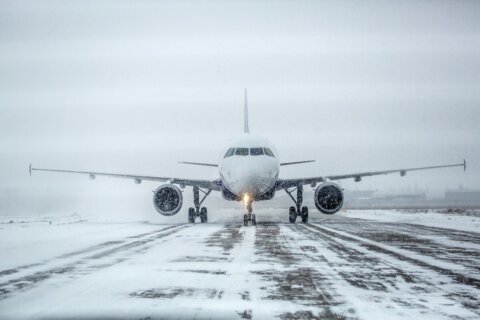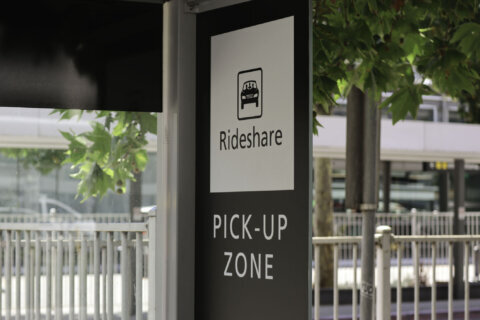As the coronavirus pandemic continues, AAA expects most Americans to stay home this holiday season.
Public health concerns and travel guidance from the Centers for Disease Control and Prevention are influencing their decisions not to travel over the year-end holidays, a period that typically sees high demand for vacations, according to AAA.
While AAA expects at least 34 million fewer travelers compared to last year’s holiday season, as many as 84.5 million Americans may still travel from Dec. 23 through Jan. 3, a decline in travel of at least 29%.
“While Thanksgiving is traditionally spent gathering with friends and family, the year-end holidays are when Americans often venture out for longer, more elaborate vacations. That will not be the case this year,” said Paula Twidale, senior vice president, AAA Travel.
Two-thirds of all D.C. area residents are expected to stay home during the busiest and biggest holiday travel period of the year including Christmas Day and New Year’s Day. The number of holiday travelers from the region will plummet almost 30 %, AAA said.
It is projected, however, that as many as 2.2 million people living in and around Washington, D.C. will opt to travel 50 miles or more from home during the 12-day holiday period. This is a 27% decline in the number of holiday travelers hailing from the region, compared to this time a year ago, when nearly three million people from the area traveled over the holidays.

“This time, both holidays, Christmas Day and New Year’s Day, fall on Friday a week apart. Under normal circumstances, the number of travelers tends to spike when a holiday occurs on a Friday, creating a three-day weekend. Not this time under these existential circumstances posed by COVID-19,” said John B. Townsend, AAA Mid-Atlantic’s manager of public & government affairs.
The worst time to travel the southbound Interstate 95 corridor (Capital Beltway to Va. 123), according to INRIX, a company that analyzes traffic patterns, will be around 11:30 a.m. Dec. 28. The delay is estimated to be 31 minutes.
The CDC urges Americans not to travel for the holidays this year, warning that travel increases your chance of getting and spreading COVID-19.
For those that do travel, most will do so by car, according to AAA. Road trips are expected to account for 96% of holiday travel or 81.1 million people. This is still a decline of at least 25% compared to last year.
Those expected to fly for the holidays is down almost 60% from 2019, with about 2.94 million people expected to purchase airline tickets, according to AAA projections.
Nearly 71,000 Washington area residents are expected to book flights and fly to their holiday destinations, compared to 165,000 locals a year earlier. That’s a 57% decline in air travel across the region, according to AAA.
AAA reminds air travelers to wear their masks, and wipe down seats, armrests, belt buckles and tray tables using disinfecting wipes, as an extra precaution.
For those who decide to hit the road for the year-end holidays, gas prices remain nearly 50 cents cheaper than this time last year. Recent monthly gas prices are 19% below 2019 averages, AAA says.
“Typically, cheaper gas prices are an incentive for last minute trips, especially around the holidays. But the lower prices and less traffic aren’t driving decisions to hit the road. Americans are looking to the public health landscape, including COVID-19 case numbers, to make their travel decisions,” said Jeanette Casselano McGee, AAA spokesperson.
According to CNN, more than 4 million people in the U.S. spent Thanksgiving away from home, including more than 1.6 million who traveled out of state for the holiday.








